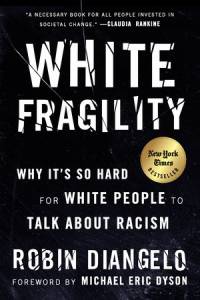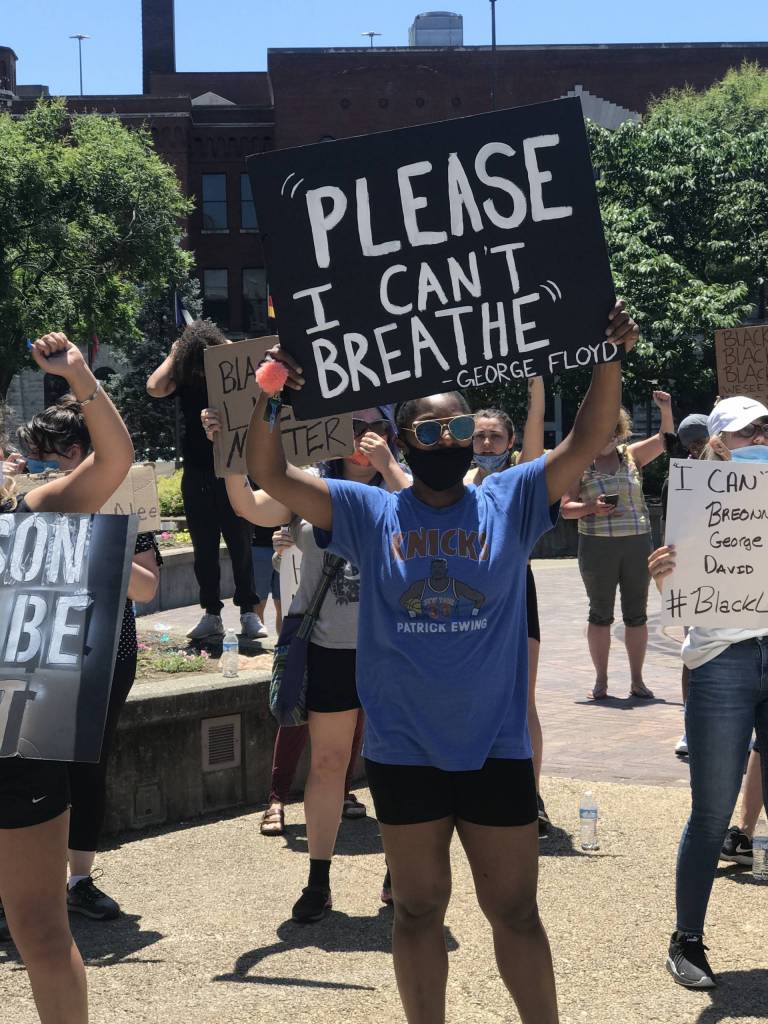 As part of the Presbyterian Hunger Program, Sustainable Living and Earth Care Concerns purposes to accompany Presbyterians reflecting on decisions as an extension of their faith and values. As a staff we remember our own need for faithful discipleship through continuous education, questioning and discovery. Most recently we have done that by reading the book White Fragility: Why It’s So Hard for White People To Talk About Racism. The New York Times best-selling book explores the reactions of white people when challenged around race and how these reactions maintain systems of racial inequality.
As part of the Presbyterian Hunger Program, Sustainable Living and Earth Care Concerns purposes to accompany Presbyterians reflecting on decisions as an extension of their faith and values. As a staff we remember our own need for faithful discipleship through continuous education, questioning and discovery. Most recently we have done that by reading the book White Fragility: Why It’s So Hard for White People To Talk About Racism. The New York Times best-selling book explores the reactions of white people when challenged around race and how these reactions maintain systems of racial inequality.
(We intend to share reflections on racial justice from various staff members. Previously we’ve shared a reflection from Jenny Oldham.)
Valery Nodem serves as the Associate for International Hunger Concerns and Joining Hands. Twenty years ago, Joining Hands was launched by the Presbyterian Hunger Program with the recognition that we are all connected through global systems. Many decisions made here in the United States have a global impact, and those decisions and practices often disproportionately impact poor people and people of color across the world. As PHP supports peoples’ struggles for water, food, land and resources, this work benefits us all in ways that we can’t even imagine. (Read Valery’s complete post on the Together For Justice Blog.)

Protestors in Louisville, KY demand justice for the police killings of George Floyd and Breonna Taylor. Photo by Valery Nodem.
As we do our work of Joining Hands in the United States and with partners around the world to fight systemic injustices, we have seen time and time again that injustices never stop unless people work tirelessly to demand change. Racism has no place in our society, and we are called to put an end to it.
“We are called to act with justice,
we are called to love tenderly,
we are called to serve one another,
to walk humbly with God!”[1]
Every time our country makes decisions that hurt people and the planet, we must speak up. Every time our corporations place profit before people, we must speak up. Every time we see injustices in our neighborhoods or in the world, we must speak up. African Ubuntu philosophy teaches us that our existence only matters as it relates to the existence of others.
This is the time to come together and do the work that is required of us. Individually and collectively, we can do a lot to work towards change within ourselves and society. Some suggestions:
- Be courageous and humble and acknowledge our racist and colonial past in the U.S. and how it places white people in a situation of privilege.
- Educate ourselves on how racism and white supremacy are deep-rooted in our institutions, policies and laws, benefiting white people to the detriment of people of color.
- Start or continue to have conversations about racism in our families, friend circles, workplaces and churches.
- Do the work to dismantle racism in our lives. Listen, speak out, show up, and do our own work.
As Nelson Mandela once said: “To be free is not merely to cast off one’s chains, but to live in a way that respects and enhances the freedom of others.”
PHP understands that ending hunger and poverty can only happen by creating just economic policies and healthy, equitable food and farming systems. We believe that dismantling systemic racism is a central component of this work.
For Racial Justice Resources visit https://www.pcusa.org/racial-justice-resources/
Tips for what allies can do from ‘Black Lives (Still) Matter’?
The work of the Presbyterian Hunger Program is possible thanks to your gifts to One Great Hour of Sharing.
[1] Hymn by David Haas